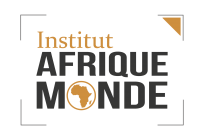Equality, training, integrity, discipline and autonomy, the ideal values of progressive African governance. By 2040, i.e. in about 20 years’ time, the African population is expected to exceed two billion inhabitants according to the latest demographic forecasts of the United Nations[1]. Corruption, lifetime presidency, military fragility, regional dissonances… the governance of African states, particularly Sub-Saharan...
Tag: Governance
The July African Union Summit in Kigali: A Suspended Union Governance
In the Rwandan capital where the 27th summit of the African Union (AU) was held, which was to elect the president, his deputy and the eight commissioners of the AU Commission, the permanent body that ensures the day-to-day running of the institution, ended in a lack of consensus. The succession of Nkosazana Dlamini-Zuma, the first...
Helping in Africa: Some Benchmarks for Thinking and Acting at the Dawn of a New “Post-2015” Approach
Denis MAUGENEST. A Former Rector of the Catholic University of Central Africa, Former Professor of Political Science at the Catholic University of Central Africa (Catholic Institute of Yaoundé). He is the creator of academic institutions in Africa, and has published a book on Living Together Despite Everything: An Introduction to Political Society (PUCAC/ Les Éditions...
Prevention of Torture in Africa: between Conventional and Non-Conventional Standards
By Jean Baptiste HARELIMANA, President of the Orientation Council, IAM, Lawyer at the Nanterre Bar Since the adoption of the Universal Declaration of Human Rights, there has been a broad consensus that torture is unacceptable and that it is a crime under international law. The prohibition of torture does not seem to require flexibility, since...
Africa and International Criminal Justice
Mutoy Mubiala, Official at the Office of the High Commissioner for Human Rights, Geneva; visiting professor at the International Institute of Human Rights (Strasbourg) and at the Ecole nationale d’administration (Paris). The views expressed in this column are personal and do not bind the United Nations. After contributing to the development of international criminal justice,...
The Normative Force of the UNESCO Convention on Cultural Diversity
By Jean-Baptiste HARELIMANA, President of the Orientation Council, IAM. On the occasion of the tenth anniversary of the Convention on the Protection and Promotion of the Diversity of Cultural Expressions, and especially in the face of the current challenges of the power of the digital age, and the plural referentials that challenge not only cultural...
Burundi: The Forward Flight
By Germain-Hervé MBIA YEBEGA, Political Scientist, Head of the “Governance, Peace and Security” programme, Africa World Institute The article was also published by Langaa Research and Publishing Common Initiative Group, December 14, 2015. Read the article.
ECOWAS Judge and the Burkinabe Democratic Revolution
By Jean-François AKANDJI-KOMBÉ, Professor at the Sorbonne Law School, University of Paris 1 Panthéon-Sorbonne, President of IpaP – Pan-African Institute of Action and Prospective I- Decision and issues The decision, as all Africa now knows, is that of 13 July 2015. The judge is the Court of Justice of the Economic Community of West African...
Towards a new climate agreement
By Chancia I. PLAINE, Environmental Lawyer Reducing Emissions from Deforestation and Degradation (REDD) is a proposal for a climate change mitigation mechanism that would reduce greenhouse gas emissions by paying developing countries to stop cutting down their forests. The concept of REDD is not a new idea. Compensation for tropical forest conservation was proposed by...

